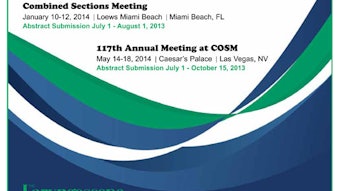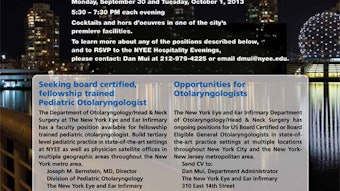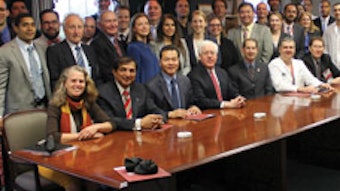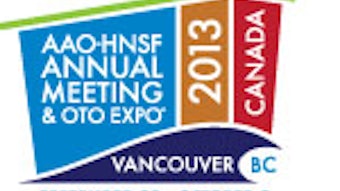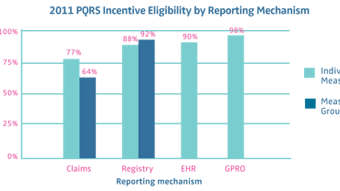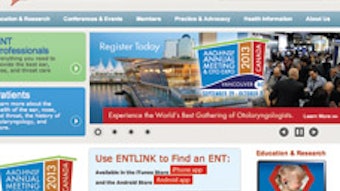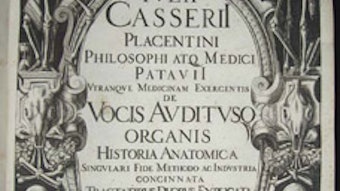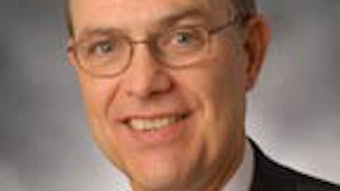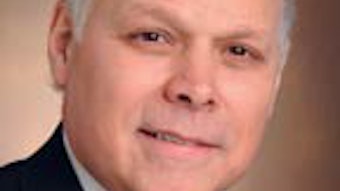CHEER Network Brings Meaningful Research to the Community
Creating Healthcare Excellence through Education and Research (CHEER) is your research network. The drive for investigators committing time and energy to CHEER is to make a difference in healthcare, see changes from their participation in our lifetimes, and leave a legacy. Studies and Projects Underway As you read through our updates, think about CHEER being your network. These studies will contribute to our understanding of the often baffling and challenging conditions that we treat all of the time. Our participating CHEER sites helps to make a difference for all of us and the patients we treat. The Sudden Hearing Loss (SHL) Study is enrolling patients. From this study we will be able to learn about the degree of infusion of the SHL clinical practice guideline in practice and answer important questions such as: What was the patient’s treatment pathway after onset of hearing loss? How long did it take them to get to the otolaryngologist? What treatments did the patient receive prior to and at the current otolaryngology visit? Is there more improvement in audiologic findings after steroids and is it different for oral, IT, combined, or sequential delivery? The Voice Therapy Study is halfway to our enrollment goal of 500 patients. This study will help us determine use of and perceptions about voice therapy from the patient, otolaryngologist, and speech language pathologist’s perspectives. We will also learn more about the personality-based characteristics of patients who are effectively treated with this approach. The Retrospective Data Collection Project is two-thirds to completion. The database has more than a half-million patients and represents more than 1.5 million visits. This de-identified patient level data includes age, gender, race, visit date, and diagnosis and procedure codes. Its primary purpose is to match sites to study opportunities and determine sample size and enrollment feasibility tables for grants. Development and Support of Clinical Investigators Expert Panel Awards. CHEER accepts applications for grant research concepts and funds two Expert Panels each year. The funding provides support for travel and meeting costs. The awardee uses the panel to develop and vet research concepts prior to grant submission. Walter T. Lee, MD, of Duke University Medical Center, and Jennifer J. Shin, MD, of Brigham and Women’s Hospital, were awarded expert panels for their research concepts this year. Task Force on Practice-based Research. This is a new Task Force currently accepting nominations with the ultimate goal of becoming an official Academy committee. Practice-based research is a challenge and requires the development of strong relationships and leadership across busy, geographically dispersed practitioners. This task force will conduct its first meeting during the AAO-HNSF 2013 Annual Meeting & OTO EXPOSM and will meet throughout the year via web conferencing. CORE Grant. CHEER was added as an additional incentive and resource this year to the Maureen Hannley Research Grant, an AAO-HNSF CORE Grant. This new component allows applicants to use the infrastructure and support of CHEER for practice-based studies. Training Research Coordinators. We have the following opportunities for training your coordinators: CHEER holds a two-day Annual Research Coordinator’s Conference each August at the Academy headquarters. This conference is an excellent training and networking opportunity for all levels of coordinators. The conference is free and travel and lodgings are covered for all CHEER site coordinators. Non-CHEER site Academy members may cover travel costs, but otherwise have their coordinators attend the conference free of charge. Investigators new to CHEER or interested in CHEER are also welcome to attend. The 2013 Research Coordinator’s Conference will take place August 8-10. Leadership opportunities: Coordinators have the opportunity to apply for the CHEER Coordinator Advisory Board (CAB). The CAB drives the agenda development for the Annual Coordinator’s Conference, and selects articles and hosts Quarterly Journal Club Calls on key topics in research process, regulations, case studies, etc. If you want to learn more about CHEER, visit us at www.cheerresearch.org or email Kris Schulz at Kristine.schulz@duke.edu. In our second five years of funding through NIH/NIDCD, we have a strong network of 28 sites throughout the country, half of which are community-based. Across our sites, we have more than 200 otolaryngologist-head and neck surgeons, 100 audiologists, 50 speech language pathologists, and many other office and professional staff dedicated to our mission of being the “nation’s resource for practice-based clinical research in disorders of the ear, nose, and throat; translate the latest evidence into practice efficiently and expeditiously; and ultimately improve patient care.”
Creating Healthcare Excellence through Education and Research (CHEER) is your research network. The drive for investigators committing time and energy to CHEER is to make a difference in healthcare, see changes from their participation in our lifetimes, and leave a legacy.
As you read through our updates, think about CHEER being your network. These studies will contribute to our understanding of the often baffling and challenging conditions that we treat all of the time. Our participating CHEER sites helps to make a difference for all of us and the patients we treat.
- The Sudden Hearing Loss (SHL) Study is enrolling patients. From this study we will be able to learn about the degree of infusion of the SHL clinical practice guideline in practice and answer important questions such as: What was the patient’s treatment pathway after onset of hearing loss? How long did it take them to get to the otolaryngologist? What treatments did the patient receive prior to and at the current otolaryngology visit? Is there more improvement in audiologic findings after steroids and is it different for oral, IT, combined, or sequential delivery?
- The Voice Therapy Study is halfway to our enrollment goal of 500 patients. This study will help us determine use of and perceptions about voice therapy from the patient, otolaryngologist, and speech language pathologist’s perspectives. We will also learn more about the personality-based characteristics of patients who are effectively treated with this approach.
- The Retrospective Data Collection Project is two-thirds to completion. The database has more than a half-million patients and represents more than 1.5 million visits. This de-identified patient level data includes age, gender, race, visit date, and diagnosis and procedure codes. Its primary purpose is to match sites to study opportunities and determine sample size and enrollment feasibility tables for grants.
Development and Support of Clinical Investigators
- Expert Panel Awards. CHEER accepts applications for grant research concepts and funds two Expert Panels each year. The funding provides support for travel and meeting costs. The awardee uses the panel to develop and vet research concepts prior to grant submission. Walter T. Lee, MD, of Duke University Medical Center, and Jennifer J. Shin, MD, of Brigham and Women’s Hospital, were awarded expert panels for their research concepts this year.
- Task Force on Practice-based Research. This is a new Task Force currently accepting nominations with the ultimate goal of becoming an official Academy committee. Practice-based research is a challenge and requires the development of strong relationships and leadership across busy, geographically dispersed practitioners. This task force will conduct its first meeting during the AAO-HNSF 2013 Annual Meeting & OTO EXPOSM and will meet throughout the year via web conferencing.
- CORE Grant. CHEER was added as an additional incentive and resource this year to the Maureen Hannley Research Grant, an AAO-HNSF CORE Grant. This new component allows applicants to use the infrastructure and support of CHEER for practice-based studies.
- Training Research Coordinators. We have the following opportunities for training your coordinators: CHEER holds a two-day Annual Research Coordinator’s Conference each August at the Academy headquarters. This conference is an excellent training and networking opportunity for all levels of coordinators. The conference is free and travel and lodgings are covered for all CHEER site coordinators. Non-CHEER site Academy members may cover travel costs, but otherwise have their coordinators attend the conference free of charge. Investigators new to CHEER or interested in CHEER are also welcome to attend. The 2013 Research Coordinator’s Conference will take place August 8-10. Leadership opportunities: Coordinators have the opportunity to apply for the CHEER Coordinator Advisory Board (CAB). The CAB drives the agenda development for the Annual Coordinator’s Conference, and selects articles and hosts Quarterly Journal Club Calls on key topics in research process, regulations, case studies, etc.
If you want to learn more about CHEER, visit us at www.cheerresearch.org or email Kris Schulz at Kristine.schulz@duke.edu.
